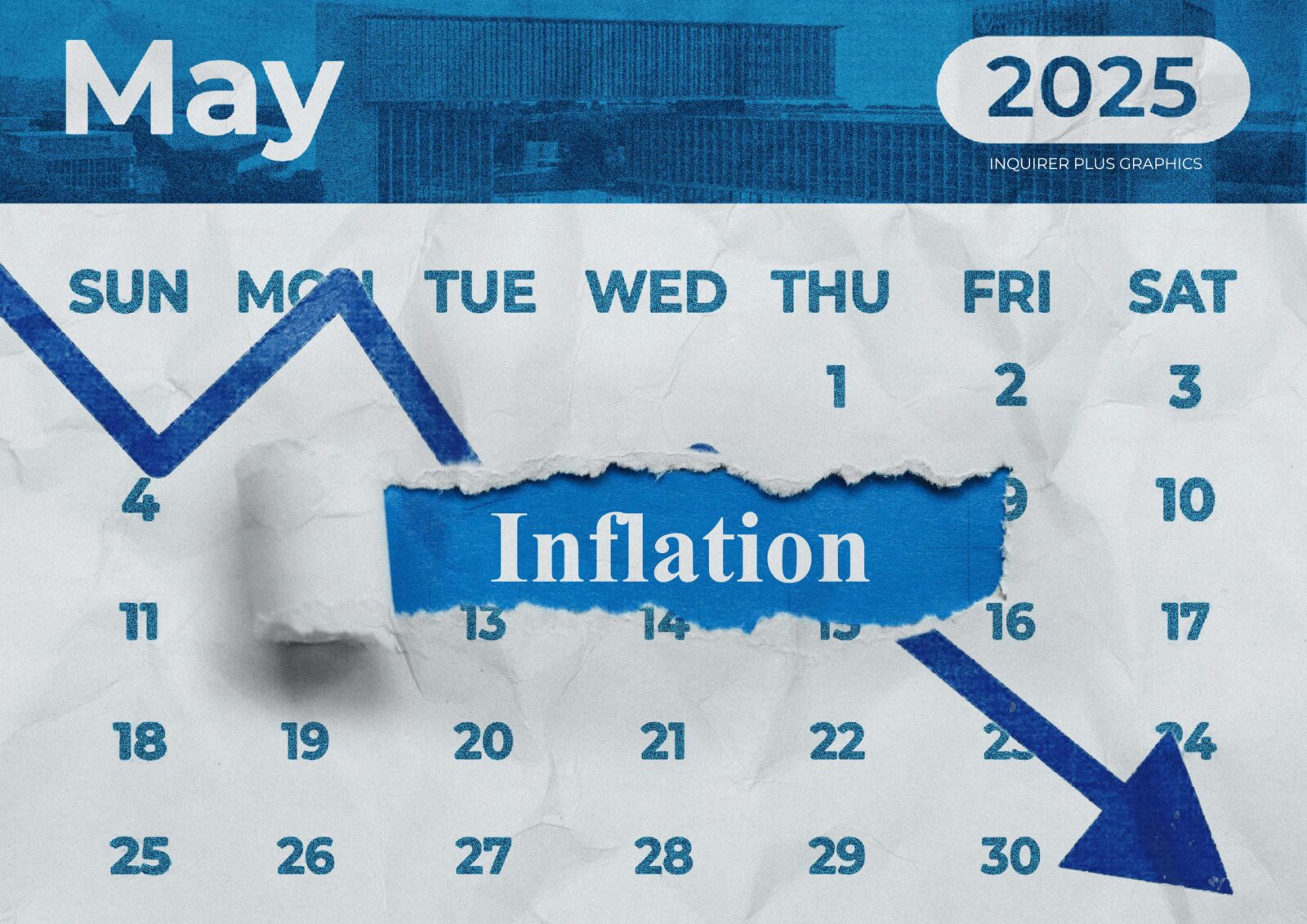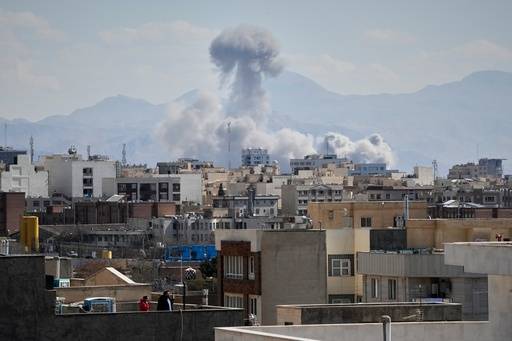May inflation at 1.3%, lowest in nearly 6 years

Inflation further eased in May to its lowest in nearly six years, keeping the door open to another interest rate cut by the Bangko Sentral ng Pilipinas (BSP) that, in turn, will lower loan charges of banks.
The consumer price index (CPI), which measures the average change in prices that consumers pay for a basket of essential goods and services, rose 1.3 percent year-on-year last month, slightly below the annual increase of 1.4 percent in April, the Philippine Statistics Authority (PSA) reported on Thursday.
This was the lowest inflation rate since November 2019, when it stood at 1.2 percent, and was correctly predicted by an Inquirer poll of economists.
The figure also settled within the forecast range of the BSP, which had forecast last month’s inflation at 0.9 to 1.7 percent.
Since the beginning of the year, inflation has averaged 1.9 percent, undershooting the BSP’s target band of 2 percent to 4 percent.
National Statistician Claire Dennis Mapa told a press conference that the top contributor to the lower inflation was the milder jump in utility costs, which slowed to 2.3 percent from 2.9 percent in April.
Data showed electricity price growth eased to 2.8 percent from 5.4 percent the month before, while gains in water bills moderated to 5.7 percent from 6.3 percent.
Another source was the deceleration in price increases of restaurants and accommodation services to 2 percent from 2.3 percent.
Mapa added that a strong peso resulted in a 2.4-percent decline in transport costs.
Data showed the combination of a rising local currency and lower global oil prices led to decreases in the prices of gasoline (-13.2 percent) and diesel (-9.3 percent) prices.
Lower loan rates
As it is, another month of benign inflation would support the ongoing easing cycle of the central bank, which has so far lowered the benchmark rate that banks typically use as a guide when pricing their loans by 100 basis points (or 1 percentage point) to 5.5 percent.
“On balance, the more manageable inflation outlook and the downside risks to domestic economic activity allow for a shift toward a more accommodative monetary policy stance,” the policymaking Monetary Board of the BSP noted in a statement.
BSP Governor Eli Remolona Jr. had said there was “plenty of room” to reduce borrowing costs, adding that at least two more rate cuts are likely on the table this year.
The Monetary Board will meet again on June 19 to decide on policy settings, a task that has become more complicated than ever amid heightened global trade uncertainties emanating from the ongoing trade war initiated by the United States.
Impact on households
“Looks like the door remains wide open for the [BSP] to cut rates in June,” said Nicholas Mapa, chief economist at Metrobank.
Speaker Martin Romualdez on Thursday welcomed the continuing drop in inflation, the effect of which should directly be felt by Filipino families.
The reelected Leyte 1st district congressman assured the public that the House of Representatives would remain focused on protecting ordinary Filipinos’ purchasing power through legislative measures that would help keep prices of basic goods affordable.
“In Congress, we are working on laws that will lower rice prices, support our farmers, and make basic goods and services more affordable. We can’t be complacent just because inflation is low this month. The goal is lasting relief,” he said.
The Speaker cited the House’s key priorities, such as the amendments to the rice tariffication law; the restoration of the National Food Authority’s regulatory function, and long-term investments in agriculture and food logistics.
In a statement, Romualdez said in Filipino: “Simple as it may sound, it is a big deal for family spending. When prices remain stable, families are able to live better. Their burden is lighter, there is money for rice, transportation fare, electricity and medicine through President Marcos’ programs. There’s no need to sacrifice other needs.”
Proposed priorities
Romualdez also pointed out that inflation for the bottom 30 percent of households was effectively zero in May, reflecting the government’s success in shielding the poorest sectors from rising prices.
For Albay Rep. Joey Salceda, the next step after a stable inflation rate is a “good” 2026 national budget that would deliver food security, inclusive growth, and visible results.
Salceda, who heads the House committee on ways and means, said the government should translate the declining inflation into a 2026 national budget that will deliver food security, inclusive growth, and visible results.
He proposed five priorities for the 2026 national budget, namely, food security through full funding for the newly ratified Livestock, Poultry, and Dairy Development Act; targeted support for small businesses adjusting to wage hikes; strategic infrastructure, especially the completion of the San Juanico Bridge within the year; timely fund releases for agencies and local governments with proven capacity to implement, and credible investments in national defense and readiness.





















